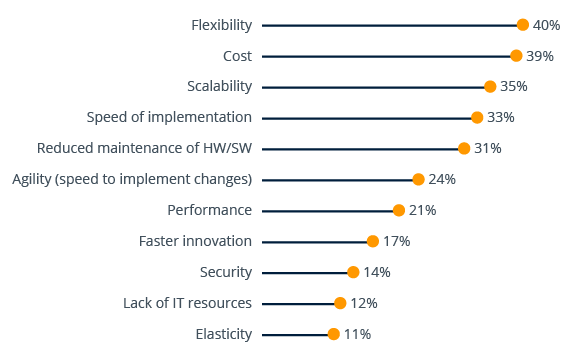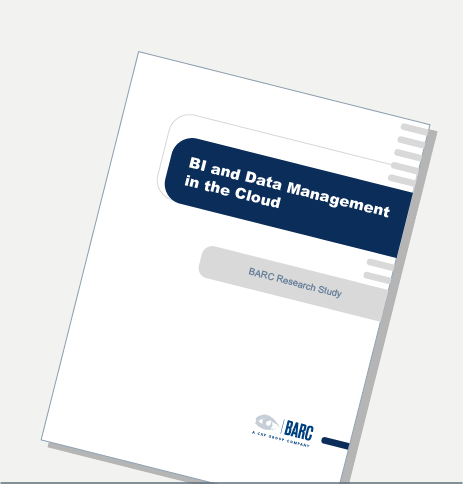This speeds up deployment and agility, allowing business people to quickly get their hands on data for a new project. Flexibility also refers to the elasticity of the cloud, which can scale processing to handle peak activity, eliminating the need to estimate capacity upfront or experience significant performance slowdowns.

What are the most important reasons for implementing BI and data management in the cloud? (n=169)
There is a perception that the cloud is a cheaper platform on which to run BI, although this is not necessarily true. Costs will vary by customer based on the amount of processing they do on a daily, weekly and monthly basis. What is true is that companies can forego capital expenditures (capex) in favor of monthly subscriptions. Being able to pay for BI out of operational budgets frees up money for other infrastructure improvements.
In cases where a vendor offers both a subscription and a license for purchase model, the break-even point where subscription fees add up to the money that would be spent on the alternative license plus software maintenance model is often hit in a 3-5 year timeframe.
BI and Data Management in the Cloud Report
Use Cases, Benefits and Challenges
Request the free report now




